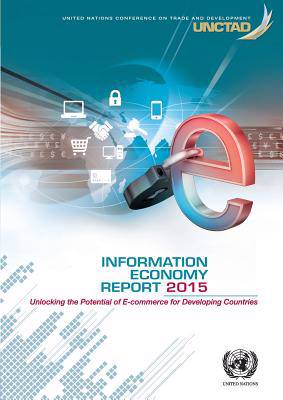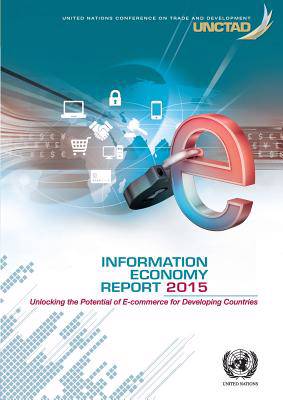
- Afhalen na 1 uur in een winkel met voorraad
- Gratis thuislevering in België vanaf € 30
- Ruim aanbod met 7 miljoen producten
- Afhalen na 1 uur in een winkel met voorraad
- Gratis thuislevering in België vanaf € 30
- Ruim aanbod met 7 miljoen producten
Zoeken
Information Economy Report
2015: Unlocking the Potential of E-Commerce for Developing Countries
United Nations Conference on Trade and Development
€ 96,95
+ 193 punten
Uitvoering
Omschrijving
Electronic commerce (e-commerce) is rapidly transforming the way in which enterprises are interacting among each other as well as with consumers and governments. Despite important potential benefits, businesses and consumers in developing countries were for a long time slow to exploit e-commerce. As a result of changes in the evolving landscape for information and communications technologies (ICTs), this pattern is now changing, and e-commerce is growing rapidly in emerging markets and developing economies. Against this background, this publication revisits the potential opportunities and risks of e-commerce and examines how countries can benefit the most from the phenomenon in today's Information Society. Using official statistics and private sector data, it provides an up-to-date review of global and regional trends related to e-commerce in view of changes in the ICT landscape, focusing on developing countries while drawing lessons from developed countries.
Specificaties
Betrokkenen
- Auteur(s):
- Uitgeverij:
Inhoud
- Aantal bladzijden:
- 142
- Taal:
- Engels
- Reeks:
Eigenschappen
- Productcode (EAN):
- 9789211128871
- Verschijningsdatum:
- 31/05/2015
- Uitvoering:
- Paperback
- Formaat:
- Trade paperback (VS)
- Afmetingen:
- 210 mm x 297 mm
- Gewicht:
- 344 g

Alleen bij Standaard Boekhandel
+ 193 punten op je klantenkaart van Standaard Boekhandel
Beoordelingen
We publiceren alleen reviews die voldoen aan de voorwaarden voor reviews. Bekijk onze voorwaarden voor reviews.











